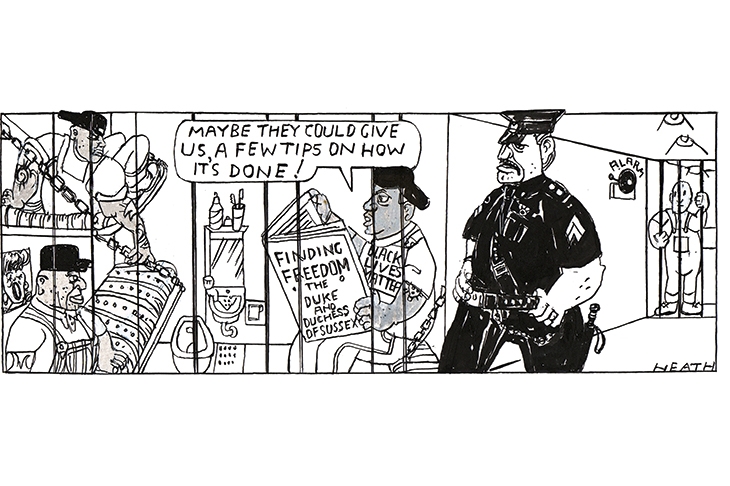Home
The government lurched uncertainly in dealing with coronavirus. Not all years in primary schools would after all return before September, and secondary schools perhaps not even then. A 14-day quarantine was imposed on people entering the country. Churches could open for individual prayer from 15 June, as could shops of all kinds. Pubs, restaurants and hairdressers would have to wait until 4 July at the earliest. Face coverings were made obligatory on public transport from 15 June. The number of workers furloughed reached 8.9 million, and 2.6 million more had made claims under the Self-Employment Income Support Scheme. The drug company AstraZeneca began to make a planned two billion doses of a coronavirus vaccine while trials proceeded on its safety and efficacy. A paper was withdrawn after being published in the Lancet; it had said hydroxychloroquine was ineffective in treating Covid-19 and led to a higher death rate.
Thousands of young people chanting ‘Black lives matter’ demonstrated in Parliament Square and outside the American embassy in Vauxhall two days running, despite a statement by Dame Cressida Dick, the Metropolitan Police Commissioner, that it was illegal, under the Coronavirus Regulations, to gather in groups of more than six. There was violence towards police. ‘These demonstrations have been subverted by thuggery,’ Boris Johnson, the Prime Minister, said. In Bristol a statue dating from 1895 of Edward Colston (1636-1721), a philanthropist and merchant implicated in the slave trade, was pulled down and rolled past Colston Hall and down Colston Avenue to be thrown into the harbour. Keir Starmer, the leader of the Labour party, said that it was ‘completely wrong to pull a statue down like that’. Campaigners earmarked other statues, including Sir Francis Drake, Gladstone and Christopher Columbus. Sadiq Khan set up a Commission for Diversity in the Public Realm to review statues and street names connected with disapproved people and to recommend the names of black people, women and those from the ‘LGBTQ+ community’.
At the beginning of the week, Sunday 7 June, total deaths from Covid-19 stood at 40,465; a week earlier the total had been 38,376. Deaths on the succeeding three days numbered 77, 55 and 286. The total number of excess deaths between 23 March and 31 May was 63,596, with the number attributable to Covid-19 being about 52,000, based on death certificates. Geoffrey Berman, the US prosecutor in charge of an investigation into the dead sex offender Jeffrey Epstein, said that the Duke of York had ‘repeatedly declined our request’ for an interview; the Duke’s lawyers took issue with his account.
Abroad
Total deaths from coronavirus by dawn on Sunday 7 June reached about 400,000. Brazil saw a large increase to a total of 35,957 deaths from 28,834 a week earlier. New Zealand reported no new cases for more than two weeks. The Supreme Court in India gave the authorities a fortnight to transport home tens of thousands of stranded migrant workers. South Africa spent £11 million bringing in 187 Cuban doctors to counter coronavirus. Paris cafés resumed service at pavement tables. Malta gave citizens €100 to spend in bars. The Dutch government ordered the cull of 10,000 mink after animals on ten farms were found to have coronavirus.
A funeral was held in Houston, Texas, for George Floyd, the black man who died in Minneapolis after a policeman knelt on his neck. The incident on 25 May, seen on mobile phone footage, had set off widespread protests and some rioting and looting. A popular slogan among protestors was: ‘Defund the police.’ The city council promised to dismantle its police department. The National Football League said players should be allowed to protest by dropping to one knee during the national anthem.
North Korea said it was cutting off all communication with South Korea, including a hotline between the two nations’ leaders. In Libya, the Government of National Accord, recognised by the UN and backed by Turkey, advanced towards Al Jufra airbase, where 14 Russian warplanes were housed. Ship owners warned of disruption in trade caused by 400,000 mariners being stranded by coronavirus measures. A tank at a power plant near the Russian Arctic city of Norilsk collapsed, spilling 20,000 tons of diesel into the river Ambarnaya. The Japanese government introduced an order making it illegal to ring a bicycle bell in an annoying way. CSH






Comments